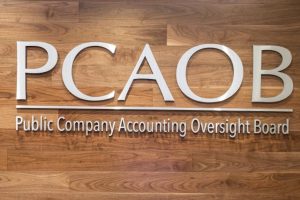
The Public Company Accounting Oversight Board (PCAOB) adopted amendments to its auditing standards on June 21 to improve lead auditors’ supervision of other auditor’s work.
As companies increase their global presence, the use of additional audit firms has become more prevalent in the conduct of external audits. In 2021, 26 percent of all public company audit engagements used multiple auditors, and nearly 30 percent of these audits involved at least five audit firms, according to the PCAOB.
Using multiple auditors, however, can create coordination and communication challenges for lead auditors, noted PCAOB Chair Erica Williams. “When miscommunication occurs or when there are misunderstandings about the nature, timing, and extent of the other auditor’s procedures, audit quality will likely suffer,” Williams said in a prepared statement.
In fact, the PCAOB continues to observe “enforcement cases and inspection deficiencies that point to failures by certain lead auditors overseeing the work of other auditors,” signaling room for improvement, Williams added.
The move is the first by the rebuilt PCAOB after a period of turbulence and relatively little action.
Increased Oversight
The new amendments, which include changes to existing standards and adoption of a new standard (AS 1206, Dividing Responsibility for the Audit With Another Accounting Firm), improve PCAOB standards principally by:
- Specifying certain procedures for the lead auditor to perform when planning and supervising an audit that involves other auditors; and
- Applying a risk-based supervisory approach to the lead auditor’s oversight of other auditors for whose work the lead auditor assumes responsibility.
“Enhancing the lead auditor’s supervision of other auditors, including through better coordination and communication, should result in increased investor protection by improving the lead auditor’s ability to prevent or detect deficiencies in the work of other auditors before the audit report is issued,” Williams said.
The amendments “provide for the lead auditor to perform specific procedures regarding other auditors’ understanding of, and compliance with, independence and ethics requirements and regarding the knowledge, skill, and ability of other auditors participating in planning and supervision activities,” said Duane DesParte, a PCAOB board member.
Overall, the amendments “clarify and strengthen the roles and accountabilities of the lead auditor and other auditors, thereby improving audit quality,” DesParte said.
The amendments apply to all audits conducted under PCAOB standards. Subject to approval by the Securities and Exchange Commission, the amendments will take effect for audits of financial statements for fiscal years ending on or after Dec. 15, 2024. ![]()
Jaclyn Jaeger is a contributing editor at Internal Audit 360° and a freelance business writer based in Manchester, New Hampshire.

